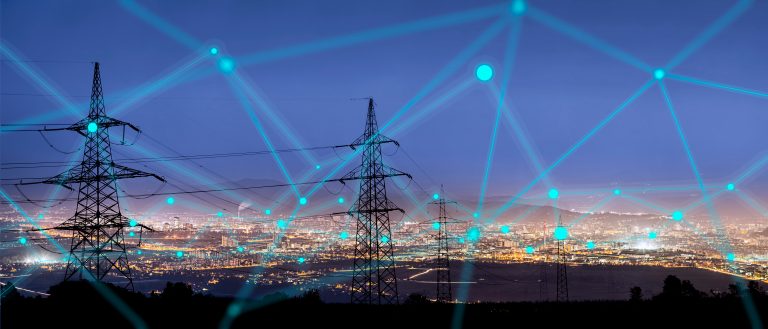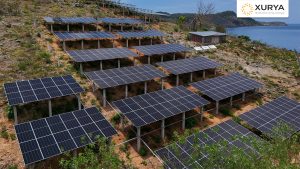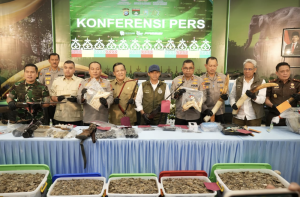Jakarta—PT PLN Energi Primer Indonesia (PLN EPI) has formed a joint venture with three strategic partners to accelerate the energy transition in eastern Indonesia. According to a statement on Wednesday, January 22, the state-owned company took this step to replace fuel oil (BBM) with liquefied natural gas (LNG) in several power plants in the Sulawesi and Maluku regions.
PLN EPI President Director Iwan Agung Firstantara said the project is part of a larger strategy to strengthen national energy security while supporting the government’s efforts to achieve its net-zero emissions target by 2060.
“The gasification of these power plants not only replaces more expensive and high-emission fuel but also prepares a more reliable and sustainable gas-based energy ecosystem,” Iwan Agung said.
The project includes the gasification of 10 gas/steam power plants (PLTG/PLTMG) with a total capacity of 660 megawatts (MW) in six locations: Pomalaa, Bau-Bau, Kendari, Gorontalo, Ternate, and Ambon. The gasification process is designed to reduce dependence on fuel while improving the reliability of the islands’ electricity supply.
“Gasification is not only a short-term solution to reduce emissions but also supports the integration of renewable energy in the future. With this synergy, we are optimistic that we can create a more efficient and sustainable energy system,” Iwan added.
Partnership with multinational consortia
To realise this project, PLN EPI is collaborating with a PT AGP Indonesia Utama consortium, PT Suasa Benua Sukses, and PT KPM Oil & Gas. The Shareholders’ Agreement (SHA) was signed on December 31, 2024, in Jakarta, marking the formation of a Special Purpose Company (SPC) that will manage this gasification project.
President Commissioner of PT AGP Indonesia Utama, Karthik Sathyamoorthy, expressed his pride in the trust PLN EPI gave. “This project is an important milestone in Indonesia’s energy transition, especially in island regions such as Sulawesi and Maluku. As a partner, we are proud to contribute to providing more reliable clean energy for the community,” Karthik said.
He also highlighted the Indonesian government’s commitment to accelerating the licensing process to support this project. “The government’s initiative in prioritising this gasification project provides certainty for investors and shows its seriousness in supporting the national energy transition,” he added.
Economic and environmental benefits
Gasification of power plants in Sulawesi and Maluku is projected to significantly reduce PLN’s operating costs, given that LNG is more competitively priced than fuel. In addition, LNG produces lower carbon emissions, thus supporting Indonesia’s target to reduce greenhouse gas emissions by 31.89 per cent by 2030 independently.
“This transformation will also strengthen the reliability of electricity supply in eastern Indonesia, which has been prone to disruptions. With integrated LNG infrastructure, we hope to provide more stable electricity services to the community,” Iwan Agung explained.
The project aligns with PLN’s roadmap towards “Net-Zero Emissions 2060”, which includes phasing out coal-fired power plants and transitioning to clean energy sources. PLN EPI is committed to expanding the use of LNG as part of the transition to more massive renewable energy in the future.
“We believe gas will be the backbone of Indonesia’s energy transition, support renewable energy integration efforts, and help achieve low emission targets in the long term,” Iwan concluded.
The gasification project is expected to start running in 2025 and become a model for developing LNG infrastructure in other regions in Indonesia. (Hartatik)















